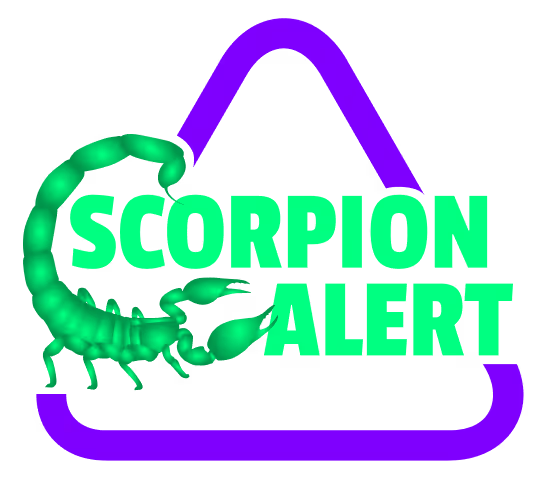You’ve probably heard that scorpions are nocturnal, but that doesn’t mean they’re blind. In fact, most scorpions have multiple eyes—but their vision is just one part of how they sense the world.
Yes, Scorpions Have Eyes
Most scorpion species have two to five pairs of eyes: a central pair on top of their head and several lateral eyes along the sides. But despite all those eyes, their vision is pretty poor. They can detect light and movement, but not detailed images like humans can.
So how do they get around so confidently in the dark?
Specialized for the Night
Scorpion eyes are extremely sensitive to light. Even moonlight can be enough for them to navigate. Some research suggests their cuticle—the outer shell of their body—might also detect UV light, helping them sense their surroundings in a more full-bodied way.
This light sensitivity explains why they glow under UV light—a trick that our Scorpion Detectors use to identify them at night.
Other Senses Do the Heavy Lifting
Scorpions rely more on vibrations and touch than eyesight. The tiny hairs on their legs and pectines (comb-like structures on their underside) pick up on subtle ground vibrations and chemical signals.
This helps them:
- Locate prey underground or in the dark
- Detect approaching predators
- Find mates or safe hiding spots
Why This Matters for Homeowners
Since scorpions don’t rely much on vision, they’re just as active in pitch-black rooms as they are under the stars. That’s why spotting them with a flashlight is hit-or-miss—they’re often moving long before you know they’re there.
Our UV-enabled Detectors don’t rely on chance. They watch the floor constantly and trigger alerts when that eerie green glow appears—eyes or no eyes.
Scorpions may not see well, but they navigate with an eerie precision. Understanding their sensory strengths helps you stay ahead—especially after dark.






